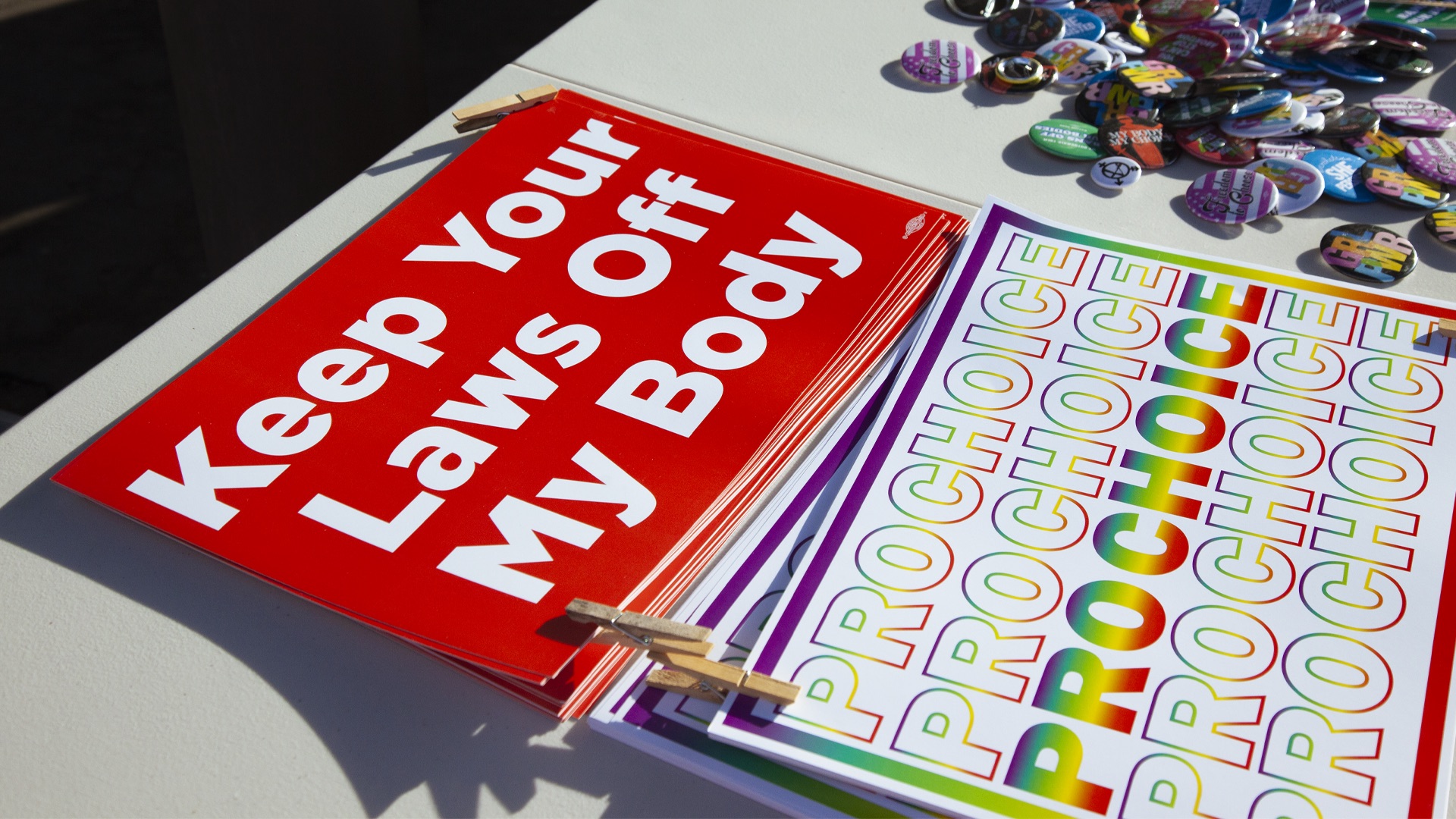
The case, Planned Parenthood vs. Mayes/Hazelrigg is set to be heard Tuesday morning by the Arizona Supreme Court. The question of the case:
How will two conflicting laws–one passed in 2022 that allows abortion through 15 weeks gestation and another, much older law that effectively bans all abortions unless the life of the pregnant person is at risk–work together to lay out Arizona’s abortion landscape?
In 2022, the Arizona legislature passed Senate Bill 1164 anticipating that the U.S. Supreme Court would rule in some significant way on the continued validity of Roe v. Wade, the case that gave the constitutional right to an abortion. That bill prohibited abortion after 15 weeks gestation.
But when the U.S. Supreme Court overturned Roe v. Wade, then-Attorney General Mark Brnovich acted to reinstate a near-total abortion ban that was still on the books after a century and a half.
“The Howell Code,” named after Judge William T. Howell, was written in 1864 and served as a way to govern Arizona after it first became a territory.
However, the code of laws did not solely focus on abortion issues. It also included other laws such as those that prohibited Black, Indigenous, and Asian people from providing evidence in favor of or against a white person in a criminal trial.
“You would also find prohibitions on marriage between white people and various categories of people of color. At that point, women did not serve on juries,” University of Arizona James E. Rogers College of Law Professor Emerita of Law Barbara Atwood said. “I mean, it's from an era that we today look at as pretty backward thinking, frankly.”
In the almost 50 years that Roe was intact, an injunction against the 1864 law prevented it from being enforced, but it was never removed from statute.
Once the injunction was lifted following the Dobbs v. Jackson decision, Arizona had both a near-total abortion ban in effect and the 15-week gestation law, creating confusion for both providers and patients.
The intervenors in the case, the Yavapai County attorney and Dr. Eric Hazelrigg, disagree claiming that they do not conflict.
“One of the arguments is that the 15-week law, as well as other abortion regulations in this state, don't actually permit abortion,” Atwood said. “They just say when abortion is prohibited. So there's not really a permission of abortion.”
Instead, it explicitly says, “this act does not repeal, by implication or otherwise,” any other of Arizona’s abortion laws, and it specifically names A.R.S. 13-3603–the 1864 law.
“The Arizona legislature has enacted a comprehensive framework of regulations around the topic of abortion…and I think that the legislature perhaps was not willing to say all of that is going to be erased if Roe v. Wade is overturned,” Atwood said.
Atwood believes that part of the statute may just reaffirm the Arizona Court of Appeals ruling, which sided with Planned Parenthood’s argument last December to harmonize both laws by applying a limited view of the near-total ban.
“The way that they came up with to make sense of both laws was to give that old law effect but only to a segment of the population that is prohibited from performing abortions under the old and the new law, and that is not licensed physicians,” Atwood said.
There is also a possibility that the Arizona Supreme Court will view the Court of Appeals' ruling as “overly creative,” according to Atwood.
Now, the issue of harmonizing the two laws is back to the courts, but this time with a six-judge panel instead of its normal seven after Justice William Montgomery recused himself. The justice took a step back from the case after statements that he made against Planned Parenthood resurfaced. In 2017, when Montgomery was a prosecutor, he said Planned Parenthood “is responsible for the greatest generational genocide known to man.” Since he has recused himself, the court is now at risk of a three-three tie vote.
If that happens, the Court of Appeals’ decision would be upheld. But will this case ever make it to the U.S. Supreme Court? Atwood says the nation’s higher court would have to decide that it deals with a federal issue, rather than state law if that is the case.
“If there's a state of chaos in the state where (doctors) might be criminally prosecuted for behavior that is unlawful under the territorial ban, but lawful under the 15-week ban or other regulations in Arizona, they have a strong argument that that's a violation of their constitutional right to fair notice about what criminal penalties might be out there.”
In any case, Atwood noted there is an attempt being made to put a ballot measure forward in 2024 that would enshrine abortion access in Arizona’s constitution.
“(The justices) are very aware that that's also another thing that's happening,” Atwood said. “It doesn't mean that they should stay their hand and wait and see what happens with the constitutional amendment. But that's a piece of this larger universe that makes it quite hard to predict.”
The Arizona Supreme Court isn't expected to rule on the case right away. Until the justices release their decision, patients can seek abortion services until 15 weeks gestation.

By submitting your comments, you hereby give AZPM the right to post your comments and potentially use them in any other form of media operated by this institution.